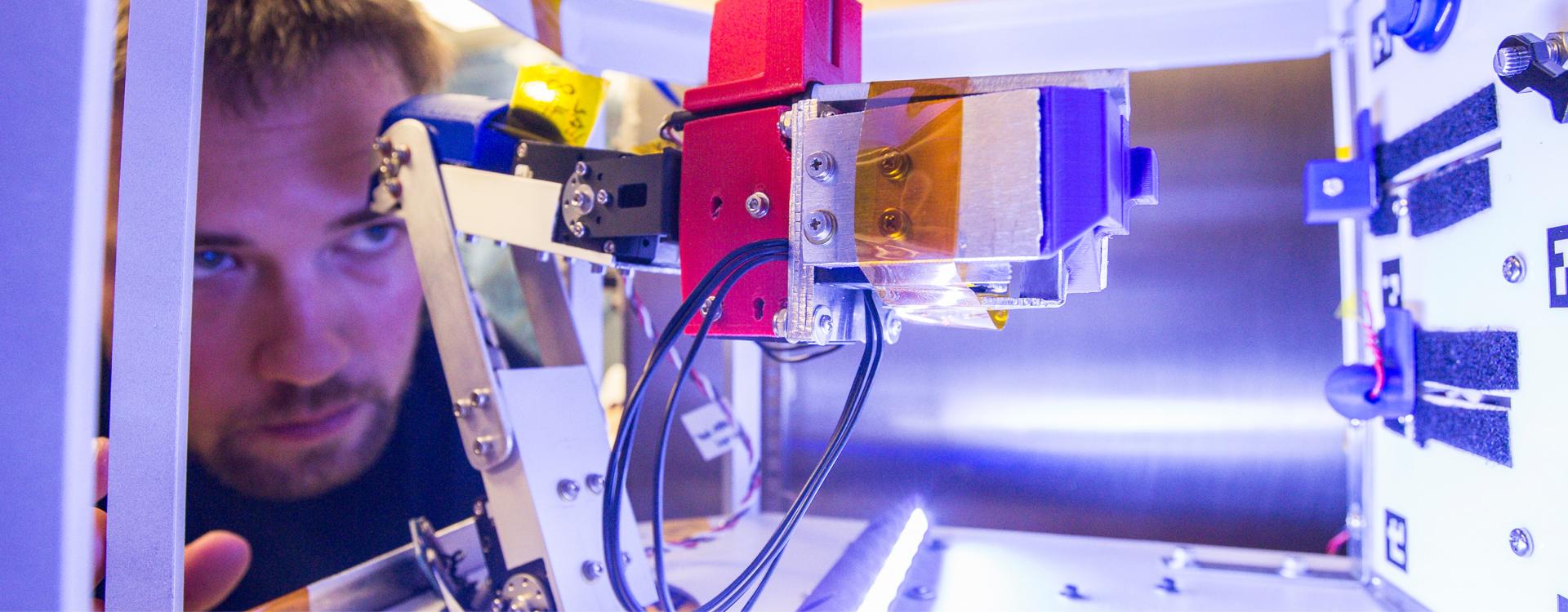For instructor Tim Postell, remote instruction is an art
Brightly colored paintings cover the walls of art instructor Tim Postell’s office, which now doubles as his classroom. A photography studio lamp floods his easel and canvas with fluorescent light and a dozen students study his movement from their webcams.
Postell has been an art instructor at Durham Tech for 13 years, but this is the first time he’s ever taught online.
“Work on your brush strokes so you don’t have texture you have to fight later on in the painting,” Postell said. “You’ll also want to incorporate some blue with the black so the background isn’t so bland.”
Postell lives in Knightdale and was told he could teach his classes from home, but he has insisted on commuting to Main Campus four days per week because it provides a better learning environment for his students.
“It was pretty shocking when classes transitioned online in March. I wondered how I was going to do this,” he said. “There was definitely a learning curve, but I got recommendations from other art instructors, figured out some workarounds, and adapted.”
Postell said the class has gotten used to the virtual classroom, and he’s doing what he can to make it the best experience for any student.
“There are so many distractions at home, for myself and the students. I needed to create a controlled environment so I moved all of the art supplies I need to teach drawing, painting, and two-dimensional design into my office, along with a studio light and webcam,” Postell said. “This is much more conducive to student’s learning and I don’t feel like I’m at home on a reality show.”
Postell said he misses the one-on-one instruction that in-person teaching provides, but has made the most of a tough situation.
“I miss watching my students change and grow with their work. That has been the hardest part about this type of teaching environment,” Postell said. “Over time we’ve discovered workarounds and helped each other adapt and resolve problems.”
Steve Kerrigan, Chair of Humanities and Fine Arts at Durham Tech, said Postell often goes beyond what is required to give his students a better chance to succeed and deliver the best possible instruction.
“Tim is always willing to take on extra work or find new ways to do things if it will help his students. This includes making a long commute to campus during the pandemic to offer synchronous instruction for his classes,” Kerrigan said. “He does this not for praise or recognition, but because he wants his students to have the best experience in what is a difficult subject to teach remotely.”
His students appreciate the extra mile too.
“My students thank me every day, but I should be thanking them because they’re showing up and doing the work,” Postell said. “They’re going through all of this too and making sacrifices to make it to class at a certain time. I know they have a lot going on and they’re so appreciative.”
Despite many challenges the pandemic has presented, Postell sees some light at the end of this long, dark tunnel.
“You pay attention to the smaller things now. They’re more precious,” he said. “I tell my students waking up in the morning is a great start and we should all be appreciative we get to do that. I feel very lucky that I get to come to campus and do this every day.”
________________________________________________________________
Contact Marcy Gardner, Content and Social Media Coordinator at gardnerm@durhamtech.edu

